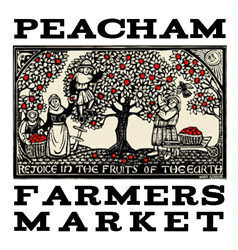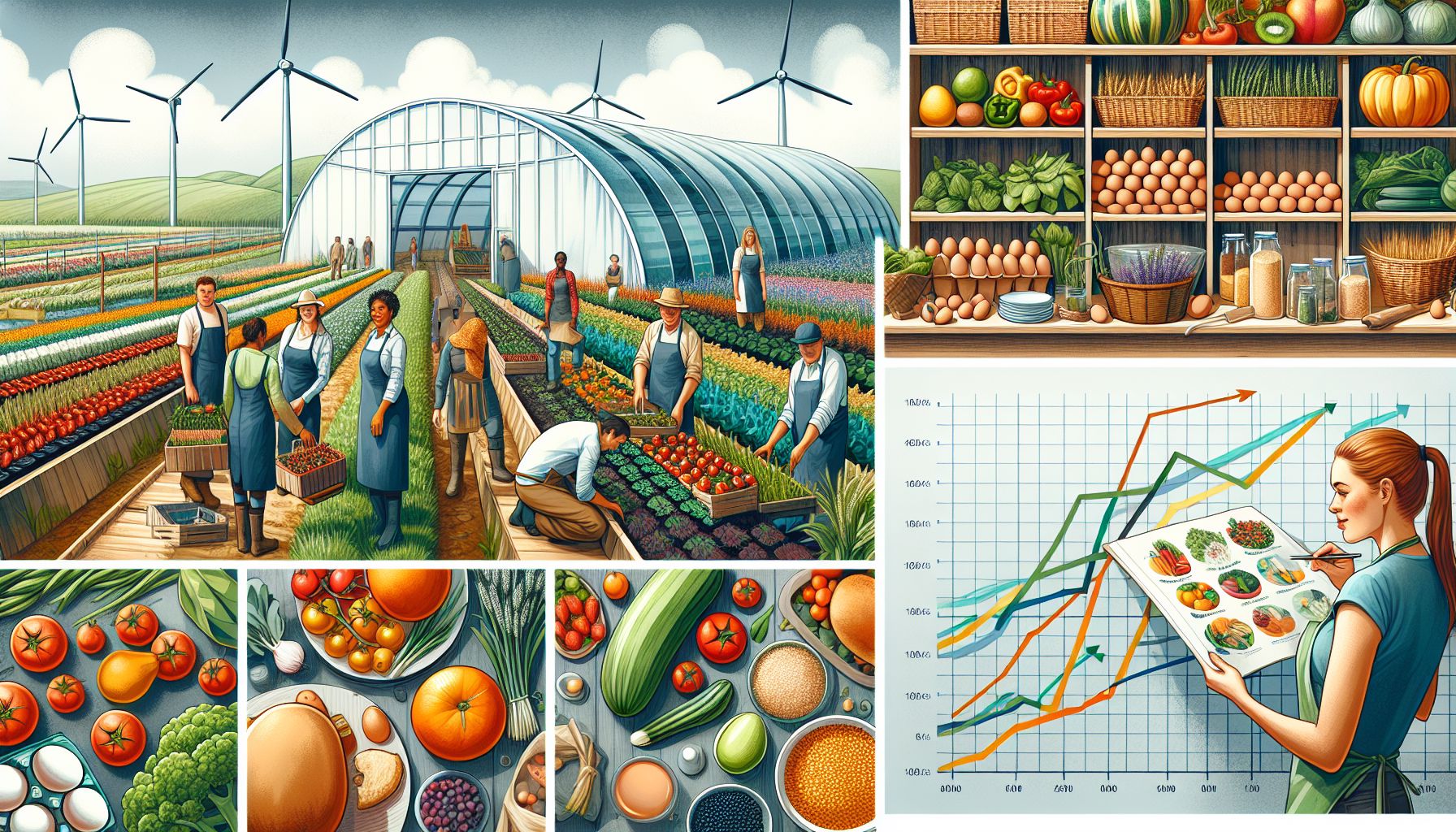Food holds a special place in our lives, from providing nourishment to connecting us with our culture and traditions. And at the heart of the food we consume are the farmers who work tirelessly to cultivate and produce it. However, with the growing population and increasing demand for food, modern farming faces numerous challenges. From environmental concerns to technological advancements, the agricultural landscape is constantly evolving. In this blog post, we will explore the latest trends in sustainable farming, the challenges faced by modern farmers, and the impact of farming on the environment. We will also take a culinary journey to discover some delicious recipes that are deeply rooted in farming and cultural expression.
The Importance of Sustainable Farming
With the increasing awareness of the impact of human activities on the environment, sustainable farming has gained prominence in recent years. Sustainable farming practices aim to minimize the negative impact of agriculture on the environment and promote long-term environmental and social well-being. One of the key components of sustainable farming is the use of natural resources, such as water and soil, in a responsible and efficient manner.
The use of technology in agriculture has greatly contributed to sustainable farming practices. From precision agriculture techniques to the use of drones for crop monitoring, technology has revolutionized the way farmers operate. These advancements help farmers make informed decisions, reduce resource wastage, and increase productivity.
Challenges Faced by Modern Farmers
While sustainable farming practices offer a promising future, modern farmers face numerous challenges. One of the most significant challenges is the impact of climate change on agriculture. Extreme weather events, such as droughts and floods, can devastate crops, leading to significant financial losses for farmers. Another challenge is the increasing cost of agricultural inputs, such as seeds, fertilizers, and machinery. These costs can be a burden, especially for small-scale and family-owned farms.
Moreover, the aging population of farmers is becoming a concern, with fewer young people opting for a career in agriculture. This demographic shift can have long-term implications for food production and rural communities. However, initiatives like promoting sustainable and environmentally friendly farming practices, and supporting farm succession plans, can help attract more young people to the agricultural sector.
Impact of Farming on the Environment
While farming is essential for our food supply, it also has a significant impact on the environment. The use of chemical fertilizers and pesticides can lead to water pollution and soil degradation. Monoculture, where a single crop is grown repeatedly on the same land, can deplete the soil of essential nutrients. Additionally, the emissions from agricultural activities contribute to air pollution and greenhouse gas emissions.
However, sustainable farming practices can reduce the environmental impact of agriculture. By promoting crop diversity, reducing the use of chemical inputs, and implementing conservation techniques, farmers can mitigate the negative effects of agriculture on the environment.
A Culinary Journey Through Farming
Farming not only provides us with the food we need, but it also plays a significant role in our cultural heritage. Different cuisines and traditional recipes are deeply rooted in farming practices. For instance, traditional Mexican cuisine heavily relies on corn, beans, and peppers – all grown by indigenous farmers using traditional farming methods. Similarly, the Farmhouse Apple Pie is a classic American dessert made with apples harvested from family-owned orchards.
Recipes to Celebrate Farming
To celebrate this culinary journey, here are two classic recipes that pay homage to farming and its impact on our food and culture:
Farmers Market Salad
Ingredients:
– 4 cups mixed greens
– 1 cup cherry tomatoes
– 1/2 cup sliced cucumbers
– 1/4 cup crumbled feta cheese
– 1/3 cup sliced radishes
– 1/4 cup sliced red onion
– 1/4 cup olive oil
– 2 tbsp balsamic vinegar
– Salt and pepper to taste
Instructions:
1. In a large bowl, combine mixed greens, cherry tomatoes, cucumbers, feta cheese, radishes, and red onion.
2. In a separate small bowl, whisk together olive oil, balsamic vinegar, salt, and pepper.
3. Drizzle the dressing over the salad and toss to coat. Enjoy this fresh and colorful salad that celebrates the produce found at farmers’ markets.
Farm Fresh Vegetable Curry
Ingredients:
– 2 tbsp vegetable oil
– 1 onion, chopped
– 3 cloves garlic, minced
– 1 tbsp grated ginger
– 1 tsp ground cumin
– 1 tsp ground coriander
– 1 tsp garam masala
– 1/2 tsp turmeric
– 1/4 tsp cayenne pepper
– 1 cup chopped vegetables (carrots, potatoes, green beans, etc.)
– 1 cup canned chickpeas, drained and rinsed
– 1 can coconut milk
– Salt to taste
– Chopped fresh cilantro for garnish
Instructions:
1. In a large pot, heat vegetable oil over medium heat. Add onion, garlic, and ginger, and cook until fragrant.
2. Add cumin, coriander, garam masala, turmeric, and cayenne pepper, and stir for a minute.
3. Add chopped vegetables and sauté for a few minutes.
4. Stir in the canned chickpeas and coconut milk, and bring the mixture to a simmer.
5. Cover and let it cook for 15-20 minutes, or until the vegetables are tender.
6. Season with salt, and garnish with fresh cilantro. Serve over rice for a flavorful and hearty curry that celebrates the diversity of farm-fresh vegetables.
The Future of Farming
As we continue to face challenges in modern farming, it is crucial to look towards the future and find sustainable solutions. By supporting environmentally friendly farming practices and promoting the importance of farming in our culture, we can ensure a sustainable future for generations to come.
In conclusion, farming goes beyond just cultivating food. It is deeply intertwined with our environment, culture, and traditions. By exploring the latest trends in sustainable farming, understanding the challenges faced by modern farmers, and appreciating the impact of farming on our food and culture, we can foster a deeper appreciation for the agricultural sector and its vital role in our lives. So let’s celebrate and support our farmers for a sustainable future, one delicious meal at a time.

